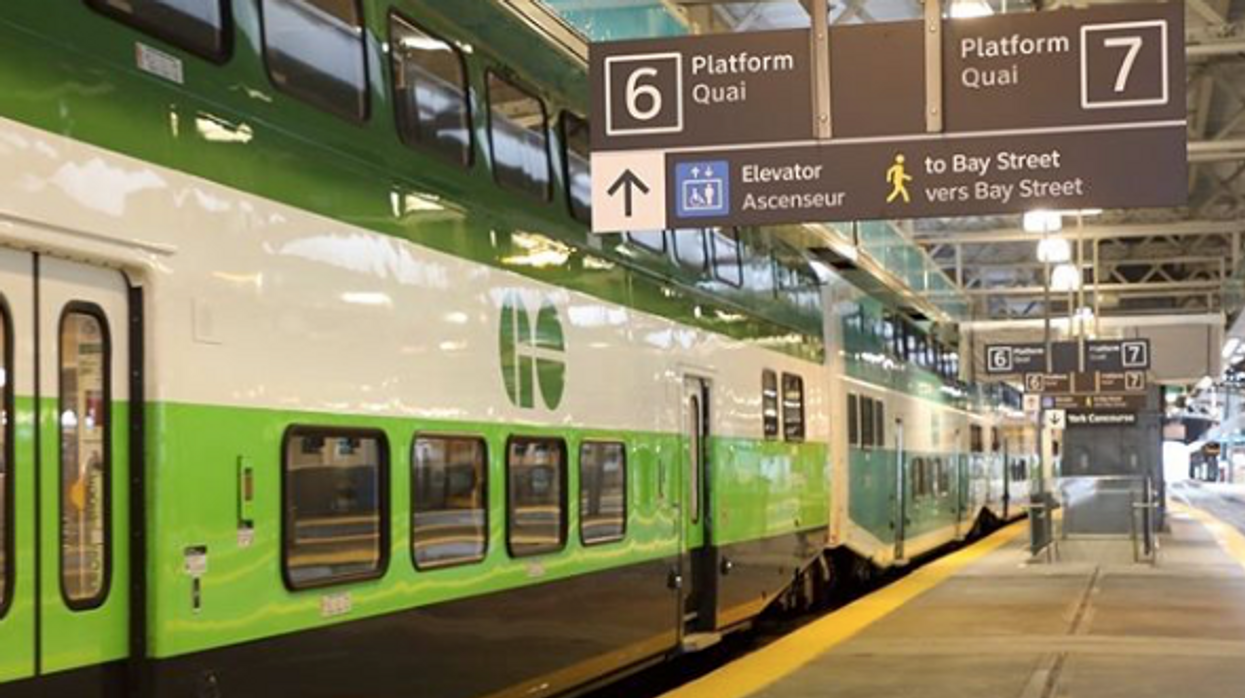The GO Train commute from Kitchener to Toronto's Union Station is definitely going to improve - only now it won't happen until 2025.
And that's a year later than originally promised by the provincial government back in January.
Metrolinx approved a plan on Friday to bring two-way, all-day GO trains to Kitchener by 2025, making commuting to the GTA a lot easier.
Disappointingly, however, that's a year later than Jeff Yurek, the previous transportation minister had promised in January. The province had hoped to have GO trains going back and forth to Union Station in Toronto by 2024.
READ: GO Expansion Is Already Having A Big Impact On Niagara Housing Prices
But, now, the Metrolinx board has finally okayed the proposal - at a cost of more than $1 billion - which will make commuters and eager house hunters in the Waterloo Region market area happy.
Two trains an hour during weekday peak period will run both ways between Kitchener and Union Station.During weekday off periods there will be one train per hour going both ways. Weekend service will expand, with one train running every two hours, both ways.
READ: Toronto Home Prices To Rise By 6 Per Cent In 2020: Report
Metrolinx spokesperson Nitish Bissonauth emailed CBC News to say the company is planning to introduce the first midday service between Kitchener and Toronto's Union Station, as well as new late-night options, although a timeline was not provided.
Bissonauth told CBC that negotiating with CN for increased track capacity in Halton means making two-way, all-day GO trains a reality will cost less than anticipated.
The province, other partners and Metrolinx will prepare a "more detailed level of analysis" and further refine the work that needs to be done.
As expected, the proposal also adds a station near Breslau, east of Kitchener.
READ: Many Toronto Homes Don’t Actually Sell Over Asking
As for current commuting, GO trains now run twice daily toward Toronto in the morning and then toward Kitchener in the evening. There is no weekend service.
The report given Friday to Metrolinx offered two options for getting the service to Kitchener. One of two key suggestions in the report showcases building a freight bypass along Highway 407. This move would permit GO trains to proceed along their own tracks for their entire route along the Kitchener corridor.
READ: More Than 40 Per Cent Of Canadian Millennials Work In The Gig Economy
This plan would take at least eight years to complete, says the report and, though it would require $3.6 billion in capital costs, it would end interference from freight trains.
The second proposed option the Metrolinx board is being given involves Metrolinx continuing to use a CN Rail line from Bramalea through Georgetown stations.
Rather than build the CN train lines, this option of the plan says that it would add extra trains by making track, signal and structure improvements as well as adding additional platforms and tracks.
READ: Canadians Believe Christmas Spending Isn’t Really Worth It: Report
It's estimated that the plans would cut 20 minutes from a commuter’s trip between Kitchener and Union Station.
Kitchener has rapidly become a tech and innovation hub (thanks to the presence of the University of Waterloo and Wilfrid Laurier University) and is an increasingly attractive destination for prospective homeowners and commuters. The greater Kitchener metropolitan area (encompassing Cambridge and Waterloo) has a population of 524,000.
Earlier this year, therecord.com reported that in recognition of growing pressures on the local 2019 housing market, the City of Kitchener wanted to launch an affordable housing strategy, but the strategy and a plan of action to address the situation wouldn't be in place until the end of 2020.
READ: Mississauga Is The Fourth Priciest City In Canada For A One-Bedroom
Signs are clear, the story said, that housing affordability is becoming a bigger concern in Kitchener. In the past four years, rents have jumped 20 per cent and average house prices have increased 50 per cent — both well above inflation. More than 40 per cent of Waterloo Region renters spend a third or more of their income on housing.
A National Rental Report released in mid-November by Rentals.ca showed that rent for a one-bedroom apartment in Kitchener was $1,160 a month. Kitchener was ranked 24th in the country for October rents. A one-bedroom in Toronto costs $2,320.
And, according to a Zoocasa.com report from September, the average price of a detached home in Kitchener (a seller's market) in August was $615,568, compared to the $619,307 cost for a condo in Toronto.
READ: You Need To Save This Much Rent For An Average Condo Downpayment
"The Kitchener housing market has changed," says a city report referenced in therecord.com story. Businesses and the economy are growing, bringing more employees and an increased demand for housing, while rising housing costs in the Toronto area mean more people are considering commuting from Waterloo Region, pushing up local prices.
According to CBC, the advocacy group Connect the Corridor —which is made up of business leaders in Waterloo region, Toronto and communities along the line — said it welcomes the new business case and timeline for two-way, all-day GO service approved by Metrolinx.





















